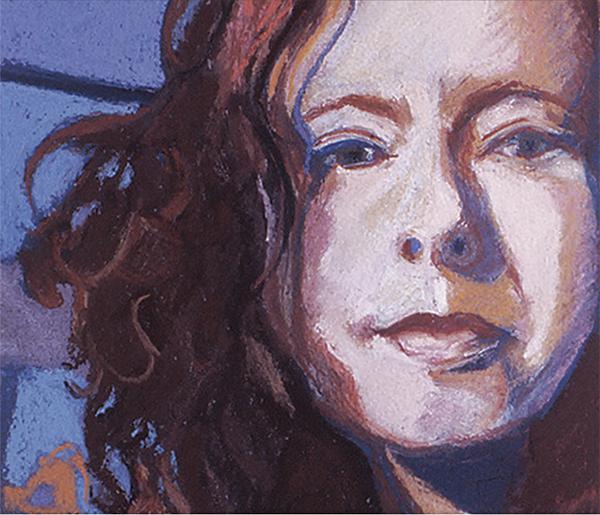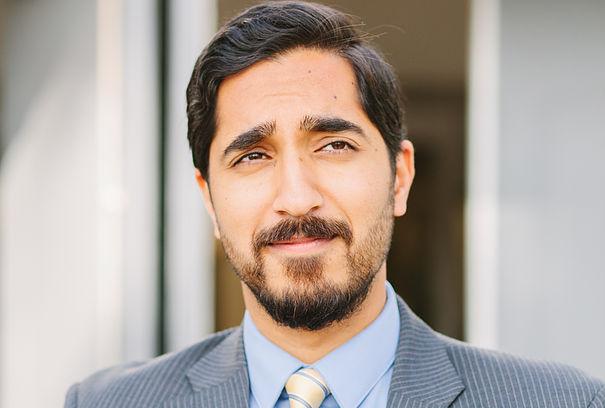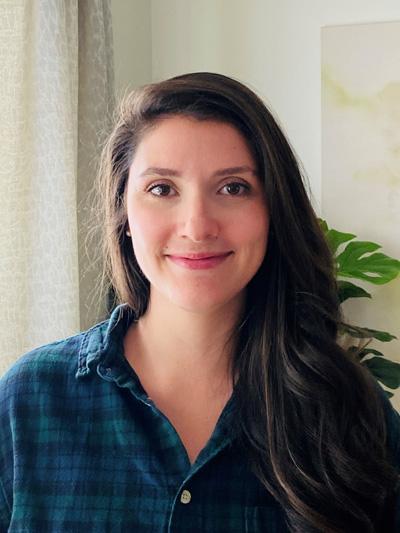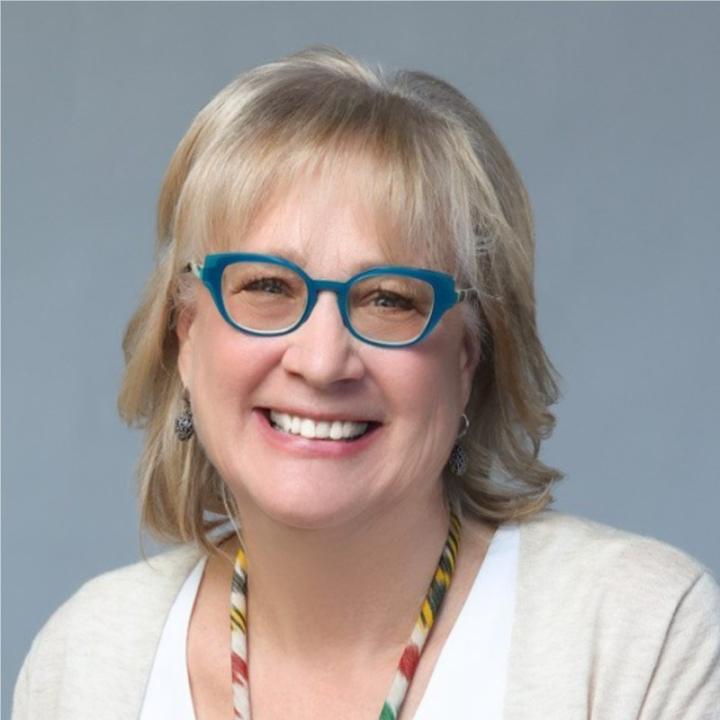Master of Arts in Interreligious Studies
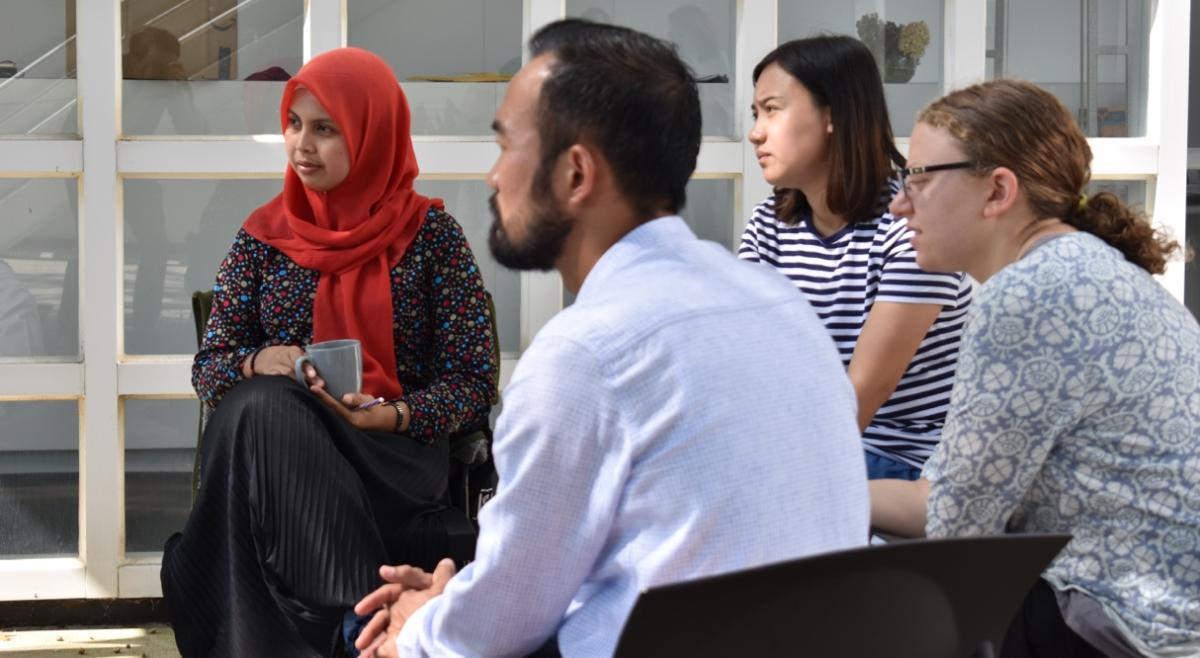
From exploring the vocabulary and grammar of different religions to experiencing faith communities other than their own, our students are immersed in collective application of theological education strengthened by interfaith dialogue with faculty and peers.
Our students graduate from this program confident that their knowledge of the foundational concepts of Abrahamic and other religions, their understanding of the role of faith in local, social, and political contexts, and their ability to conduct advanced-level research equips them to assume a role in a wide variety of professional fields in which multireligious fluency is an asset.
Program Structure
The Master of Arts in Interreligious Studies (MAIRS) is a 36-credit-hour academic graduate degree curriculum that takes a multi-disciplinary, intersectional, and dialogical approach to promoting students’ deep understanding of multiple worldviews while enabling them to become thoroughly grounded in their own religious tradition. Students in this program form a multireligious, international community of learning as they complete core interreligious coursework, electives relevant to their chosen specialization, and a capstone project or thesis.
Students choose one of four specializations:
- Interreligious Studies
- Islamic Studies
- Ecology and Religion
- Ministerial Studies (Please select this specialization if you are interested in the Cooperative M.Div. pathway)
Language Proficiency in reading scriptural texts, such as Hebrew, New Testament Greek, or Qur’anic Arabic is highly recommended for students in the Ministerial Studies specialization or the Islamic Studies specialization.
-
The MAIRS curriculum facilitates dialogical engagement between students from different religious traditions as they study religion from contrasting vantage-points. Its multidisciplinary and collaborative approach promotes breadth of knowledge, research skills, and the arts of leadership in multireligious perspective. By providing a range of courses and ample opportunity for specialization, the MAIRS program encourages each student to develop or reinforce foundational knowledge a specific religion of their choosing.
MAIRS Core Requirments
Gateway Course (3 credits)
DI-550: Introduction to Interreligious Studies is an intersectional, dialogical course that integrates theory and practice in its exploration of relationships between individuals or groups who orient toward "religion" differently.
Co-Taught Seminars (6 credits)
MAIRS core seminars are taught collaboratively by a pair of professors with contrasting academic expertise or religious commitments, thus modeling dialogue, interreligious understanding, and interdisciplinarity. Students choose two of the three core seminars:
- RS-525: American Religious Realities
- IP-611: Peace, Justice and Violence in the Sacred Texts
- TH-513: The Faiths as Formal Realities
Specialization (24 credits)
Students will choose one of the following specializations:
General Studies
- 8 elective courses (which students select in consultation with their advisor)
Islamic Studies
- 4 courses in Foundational Fields
- 2 courses in Beliefs and Practices
- 2 electives in any of the areas above, or courses in the Arabic language.
Ecology and Religion
- 3 courses in Ecological Studies
- 1 course or Independent Study in which substantive connection to ecological questions will be made
- 4 elective courses
Ministerial Studies
- 2 courses in Scripture
- 2 courses in Arts of Ministry
- 2 courses in Foundations of the Christian Faith
- 2 courses in Beliefs and Practices
Students who choose the Ministerial Studies specialization may join our Cooperative Master of Divinity program. Cooperative Master of Divinity students learn together with colleagues from other religious traditions, developing knowledge and building skills for ministry in a multifaith world, before moving on to complete degrees at Yale Divinity School, Boston University School of Theology, Drew Theological School, Meadville Lombard Theological School, or Chicago Theological Seminary’s online program.
Final Requirement (3 credits)
Students will complete either a capstone project or a thesis.
- Completion of a thesis is strongly recommended for students considering further graduate study, particularly a Ph.D., at any point in their future.
- Students specializing in Ecology and Religion are expected to submit a project or thesis focusing on eco-theology, eco-justice, or eco-spirituality.
- Students in the Ministerial Studies specialization who intend to transfer to one of our partner schools to complete the M.Div. will take an additional elective instead of completing a final requirement.
-
- Articulate your own worldview or religious belief system while empathically and respectfully engaging people whose worldviews, religious practices, and religious beliefs differ from your own
- Demonstrate fluency in the foundational concepts, insights and methods of Interreligious Studies and the application of those methods within contemporary multifaith settings.
- Explain and use important theoretical approaches to religious studies.
- Provide clear and empathic restatements of the beliefs and perspectives of several religious traditions.
- Illustrate how religions help people promote peace or harm, both within and between communities.
- At the level needed to take part in substantive dialogue, demonstrate knowledge of the roles of the scriptures and sacred texts of Judaism, Christianity, and Islam.
- Identify the scriptures and sacred texts of Judaism, Christianity and Islam, including their major divisions and parts.
- Explain and differentiate between various methods of historical and contemporary scriptural interpretation by adherents, paying attention to both the differences within and differences between religions.
- At the level needed to take part in substantive study, demonstrate knowledge of the theological and legal traditions within Judaism, Christianity, and Islam.
- Identify and explain the major tenets and religious worldviews of Judaism, Christianity and Islam.
- Describe the major branches of Judaism, Christianity, and Islam and the theological and/or legal differences between them.
- Demonstrate knowledge of the current state of religious pluralism of the United States.
- List and describe the major religious communities in the United States, noting the specific contributions of each major religious community to a religiously plural America.
- Be able to explain how religious identity in the US plays a part in intersectional identities that may also include dimensions such as race, ethnicity, gender, and sexual identity.
- Express your ideas and perspectives clearly in oral and written communication.
- Write sustained, coherent arguments or explanations in clear academic English, with well-formed sentences and paragraphs.
- Create or deliver clear, engaging, and succinct presentations that may utilize visual, written, and spoken elements.
- Conduct research on the Master’s level in the field of Interreligious Studies.
- Use responsible research methods in selecting and interpreting sources.
- Develop an extended line of inquiry or argument, in relation to a defined topic, at the high level expected of a Master’s thesis or project.
- Utilize a full range of university library resources for the purposes of research and properly cite these sources.
- Articulate your own worldview or religious belief system while empathically and respectfully engaging people whose worldviews, religious practices, and religious beliefs differ from your own
-
Application Requirements
- Rolling admissions (June 15 for international students) for the Fall Semester; to be considered for financial aid, separate Applications for Financial Assistance must be completed and submitted to the Financial Aid Office.
- Rolling admissions (November 1 for international students) for the Spring Semester.
All completed applications are reviewed by the Admissions Committee.
- Prior Education: Complete official transcripts from all previous undergraduate and graduate institutions must be submitted to the Admission's Office. Applicants are required to present transcripts in English or accompanied by a certified English translation. A bachelor’s degree (or its educational equivalent) at a high level of achievement from an accredited institution is a prerequisite for admissions. Admission is granted only on the basis of the terms stated in the Hartford International University Catalogue and in the admission letter. In certain circumstances, a limited number of highly qualified students without the requisite Bachelor’s Degree will be considered for admission.
NOTE: Admitted students with non-U.S. transcripts will be required to submit evaluated transcripts completed by a credential evaluation service. You do not need to have your transcript evaluated unless you have been admitted. Your admission will be provisional until an evaluated transcript is received and reviewed. We must receive your evaluated transcripts within three weeks of the date on your admission letter. We recommend The Evaluation Company (formerly SpanTran) as the most economical option for transcript evaluation. HIU will be notified directly when the transcript evaluations are completed.
- Statement of Purpose: Each Statement of Purpose is unique and is meant to be an expression of the individuals that write them. We want to know what is important to you, what has shaped you, and, ultimately, who you are. You have the opportunity to tell us about the aspects of your character and experience that help us understand why you are a good match with this program. We also want to know how you would both gain from and contribute to our unique environment. The Statement of Purpose should be four to five pages (typed, double-spaced) and should reflect on:
- your goals in seeking theological education and the life experiences or values that have led you to do so
- the reasons you have chosen HIU in particular
- your educational/ vocational goals
- your perceived strengths and potential areas for development.
- References: Three letters of recommendation. We prefer that one be from a faculty member of an institution from which the applicant has earned a degree or another person who can speak to the applicant’s potential for graduate level study. HIU recognizes that everyone has a different pathway to graduate work, so although we have listed preferences, we encourage applicants to submit letters from those who know them best and can offer helpful information to the application.
- English Language Proficiency: Students who are not native English speakers or who have not had English as a primary language of instruction in their academic studies, are required to submit scores of the Test of English as a Foreign Language (TOEFL), the International English Language Testing System (IELTS), or the Duolingo English Test (DET) examination and achieve a minimum score of 80 on the internet version of TOEFL or 550 on the paper based total; 6.5 on the IELTS; or 110 on the DET.
- Transfer Credit: Applicants who have previously taken graduate level courses in religion from an accredited institution may be eligible for up to 9 credits of transfer credit. Requests concerning transfer credit should be made at the time of application.
-
Need-based financial aid:Domestic applicants may apply for university grants by completing the FAFSA (Free Application for Federal Student Aid) and the HIU Scholarship and Grant Supplemental Form. Based on demonstrated need, admitted students who are registered for 2 classes or more (6 credits or more) may receive up to 40% off tuition.
Merit Scholarships:
Domestic and international candidates may apply for the Dean's Scholarship, see our Types of Aid page for more details.International applicants, who are admitted, may apply for institutional aid (30% off tuition) by submitting the HIU Scholarship and Grant Supplemental Form. This International Student Scholarship is renewable annually, with the completion of the Supplemental form each academic year. Note that reporting external funding is a requirement of all students receiving aid at HIU.
Where Your Journey May Lead
MA in Interreligious Studies Career Paths
While you, like many HIU alumni, can pursue more traditional career paths in faith-based organizations and clergy roles, studying religion in a multi-faith classroom prepares you for careers that make the world a better place in many shapes and forms.
Start a Non-Profit or NGO
Advocacy & Social Services
International Diplomacy & Foreign Affairs
Teaching in Public & Private Schools
Become a Business Owner
Pathway into Chaplaincy
Courses you may take
Here is a small sample of courses students in the program take. To view the entire course listing, use the link below.
-
The gateway course to the MA in Interreligious Studies and a required course for the MA in Peacebuilding curriculum, Introduction to Interreligious Studies is an intersectional, integrative course that promotes deep understanding of worldviews different from one’s own.
-
As part of the MAIRS curriculum, this course facilitates an understanding of the scope of America’s religious diversity: the nature of its current complexity and factors contributing to its emergence; the mutually influencing interactions between religious communities (their convictions, practices, and structures); and the American contextual trends, such as immigration, political issues, and social drivers like race, ethnicity, or gender.
-
Explores how faith communities move from the text to practices with the use of structured beliefs and traditions, approaches and doctrines.
-
This course will examine and draw lessons from case studies that highlight the problematic interweaving of race, religion and politics in the lives of human beings designated as minorities, including African-Americans, American Catholics, Jews, and Muslims.
-
-
In this course, we examine what the Qur’an says about “woman” and we consider both classical and contemporary exegetical approaches to Quranic interpretation.
-
This course will use an historical approach to uncover the identities of early Jewish, Christian and Muslim communities, their views of the Patriarch, and how such identities have guided and impacted inter-communal relations in specific contexts, including medieval Egypt and Spain, and modern Germany and Israel/Palestine.
The Value of Experience
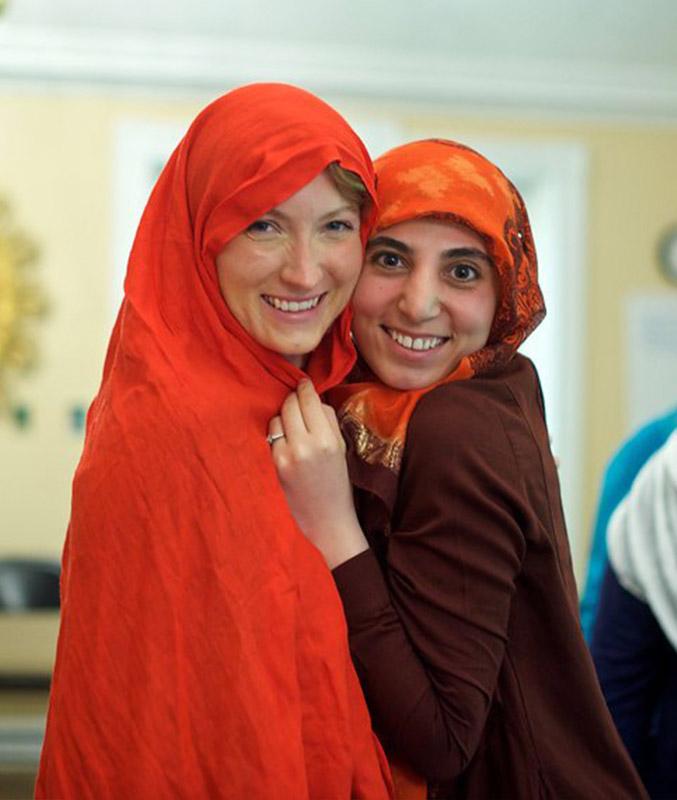
Research & Projects
Our students have used their capstone projects to create interfaith clergy networks and research projects to examine questions of religion in contemporary society like “When Did Black Lives Begin to Matter? Race Dynamics and American Muslims” and “Spiritual Connections Between Christians and Muslims in a Hospital Chaplaincy Context.”
Faculty
Our faculty bring years of academic and practical experience teaching and serving different faith communities across the globe. They are award-winning authors, scholars of religion, and passionate leaders in interreligious and religious relations, as well as higher education. They have spoken to their research on international stages, emphasizing sociological contexts, gender, and religion in the modern world.
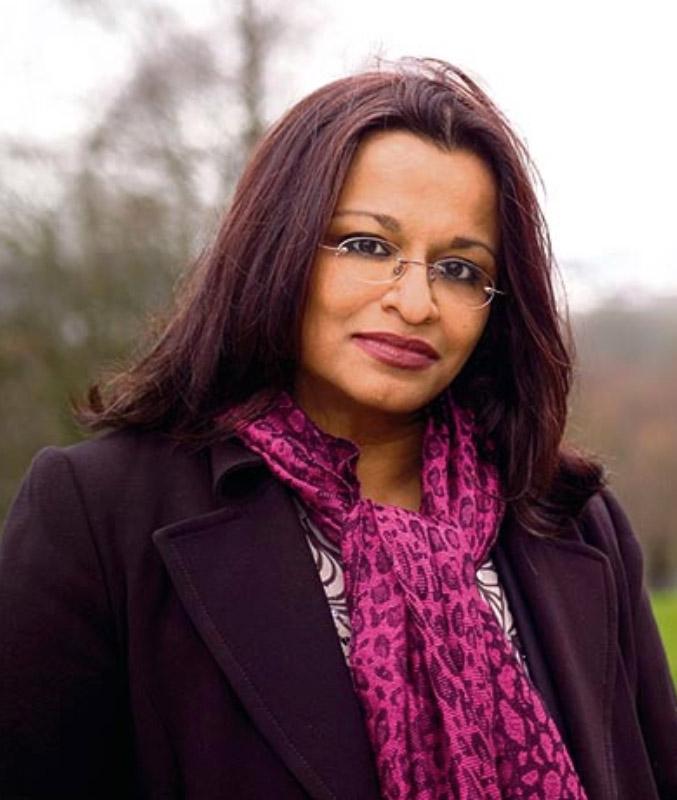
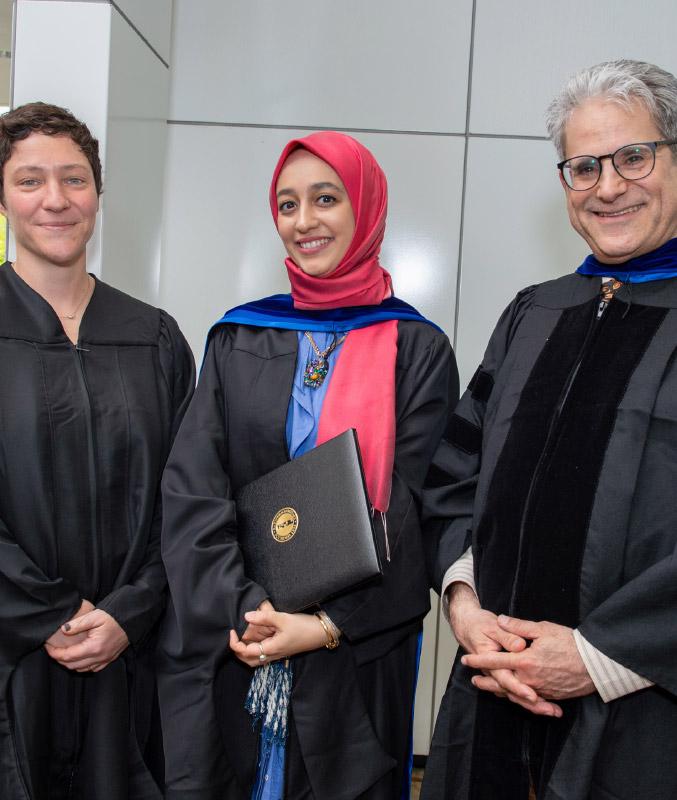
Alumni Network
With a foundation in interreligious thought, dialogue and critical thinking, our alumni are set on a path to many fields such as social justice, policy, human rights, foreign diplomacy, community organization, social work, nonprofit leadership and psychology – in addition to traditional religious roles.
The People Who Thrive Here
Despite coming from different faith, cultural, and professional backgrounds, your interreligious studies peers share your curiosity, willingness to embrace complexity, and love for all of humanity. Together, we embrace our differences and see faith as a means to connect with and care for others.
Opportunities & Highlights
Admission Information
Related Blog Posts
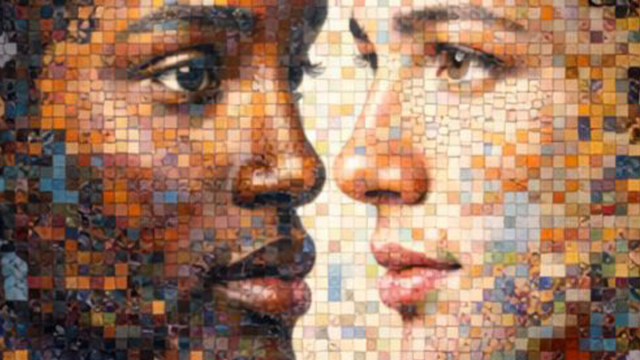
Building Interfaith Communities
Multi-partiality as a Path to Transformative Peace: Lessons from Constructive Conflict Intervention
Over the past few months, my understanding of multi-partiality has shifted from something abstract into something lived and embodied. The post Multi-partiality as a Path to Transformative Peace: Lessons from Constructive Conflict Intervention first appeared on Religion & Peace.
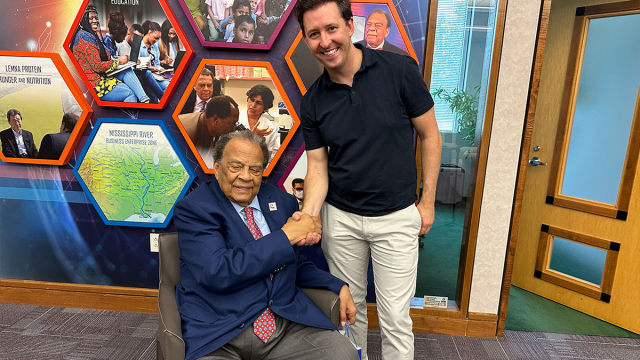
Building Interfaith Communities
Howard Thurman, Martin Luther King Jr., and Andrew Young: Three Men, One Mission
Last summer, I found myself standing in a quiet Connecticut tobacco field just outside of Hartford, guiding a drone across a vast landscape. The post Howard Thurman, Martin Luther King Jr., and Andrew Young: Three Men, One Mission first appeared on Religion & Peace.
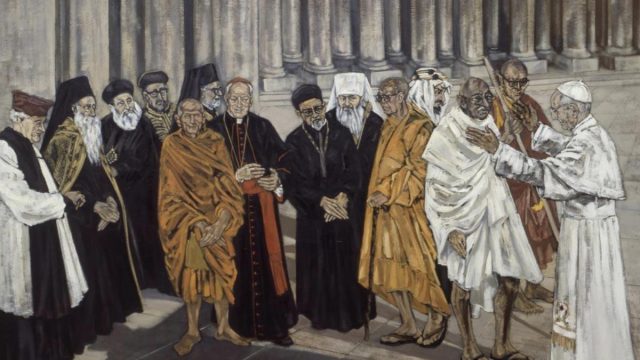
Interfaith & Interreligious Dialogue
Interreligious vs. Interfaith: Exploring the Similarities and Differences Between These Terms
“Interreligious” and “interfaith” are often used interchangeably, though some scholars, practitioners, and activists favor one term over the other. Learn more about how we define these two terms, their similarities, and their differences. The post Interreligious vs. Interfaith: Exploring the Similarities and Differences Between These Terms first appeared on Religion & Peace.
Take the Next Step
Broaden your perspective. Deepen your ability to make a difference. Hartford International University programs prepare religious leaders and peacemakers who go beyond their own beliefs to embrace people of all faiths.
Recent News
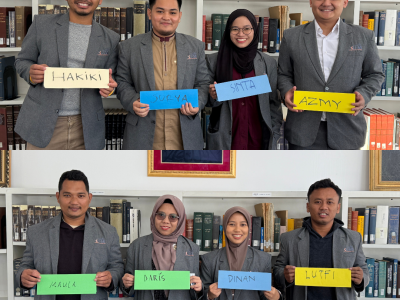


Alumni News
Former Board Chair and Alum, Bill Farley '97, Publishes a Book of Spiritual InsightsJanuary 29, 2026
Join our mailing list
Keep up with all the latest happenings at Hartford International.


